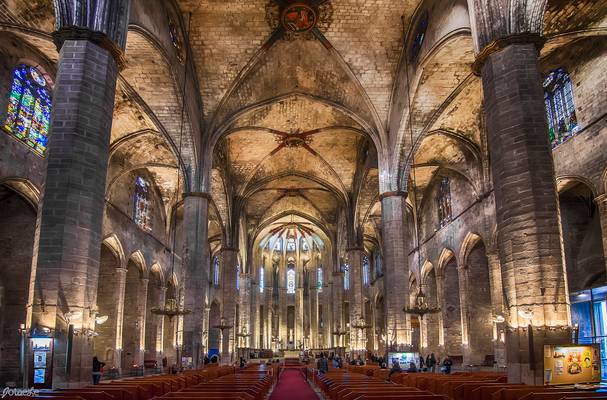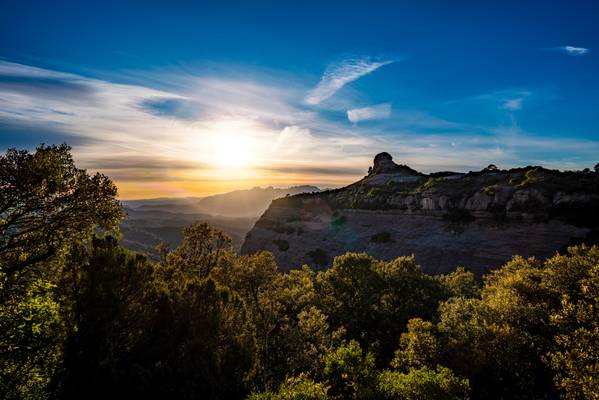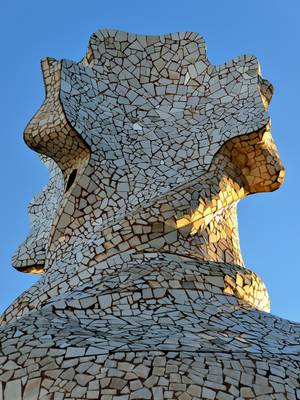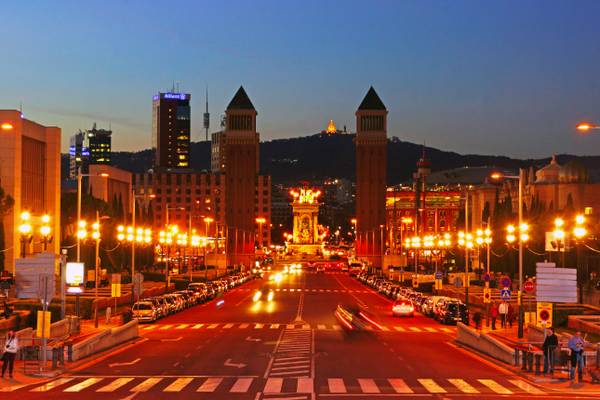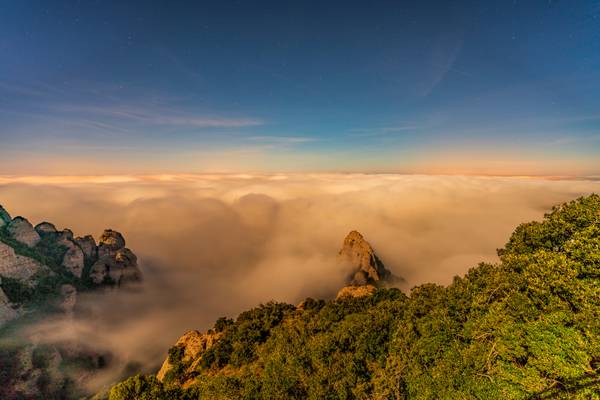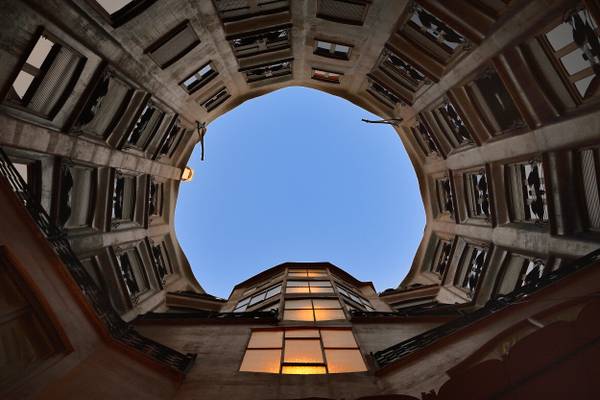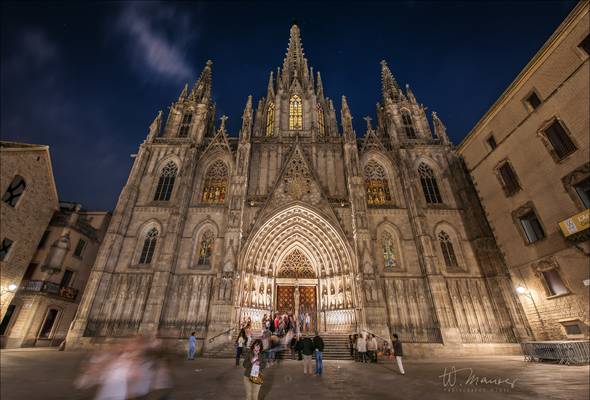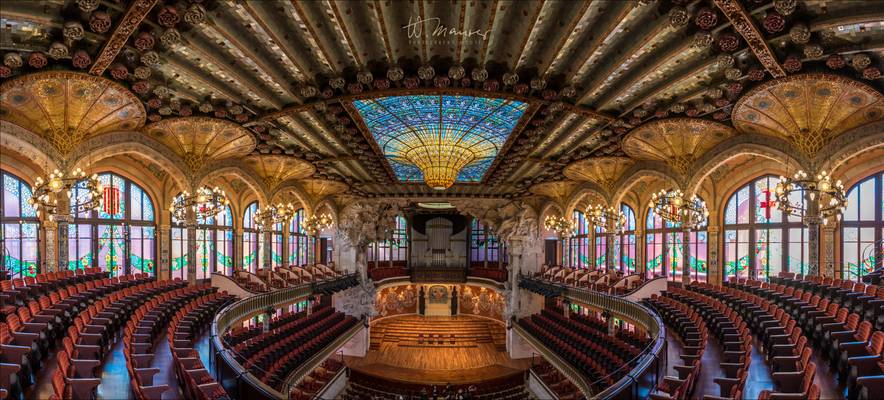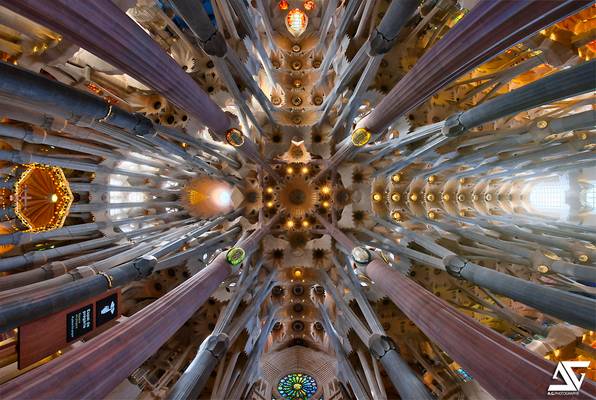
Metropolitan domain

by AG PHOTOGRAPHE
Sagrada Família, Barcelone, Espagne (HDR)
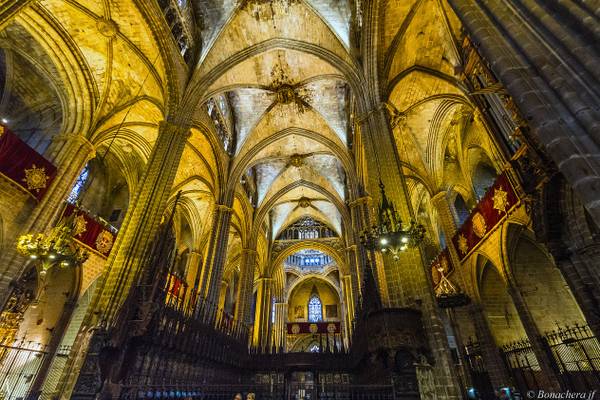
by Jean François Bonachera
La Cathédrale Sainte-Croix de Barcelone: Le Chœur de la cathédrale : sur le dossier des stalles se trouvent encore les tableaux aux armes des chevaliers de l'ordre
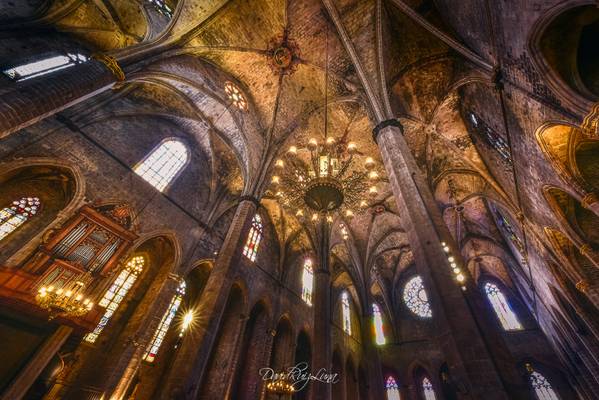
by David ruiz luna
La iglesia de Santa María del Mar es una basílica menor situada en la ciudad de Barcelona, Cataluña, España. Fue construida entre 1329 y 1383. Desde el 3 de junio de 1931, tiene la catalogación de Bien de Interés Cultural.
La basílica de Santa María del Mar protagoniza la novela de Ildefonso Falcones, La catedral del mar, que ha vendido más de seis millones de ejemplares y ha sido traducida a numerosas lenguas. Igualmente, en la segunda parte de la novela, Los herederos de la tierra. También se hace referencia a ella en la obra de Carlos Ruiz Zafón, la novela El juego del ángel, y en la novela juvenil Thesaurus, Ombres a Barcelona de Àfrica Ragel.
The church of Santa María del Mar is a minor basilica located in the city of Barcelona, Catalonia, Spain. It was built between 1329 and 1383. Since June 3, 1931, it has been classified as a Site of Cultural Interest.
The Basilica of Santa María del Mar stars in Ildefonso Falcones' novel, The Cathedral of the Sea, which has sold more than six million copies and has been translated into numerous languages. Likewise, in the second part of the novel, The Heirs of the Earth. Reference is also made to it in the work of Carlos Ruiz Zafón, the novel The Angel's Game, and in the youth novel Thesaurus, Ombres a Barcelona by Àfrica Ragel.
Barcelona, November 2016
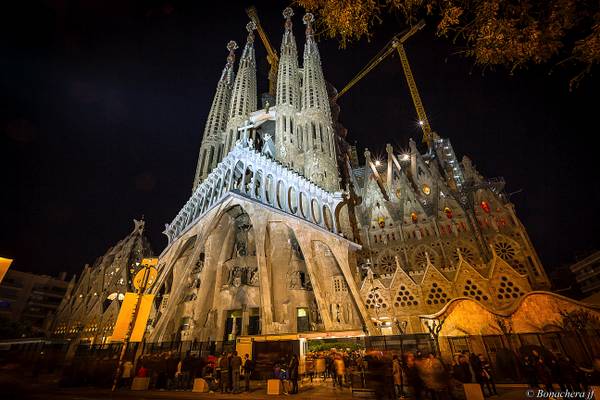
by Jean François Bonachera
La Sagrada familia by night
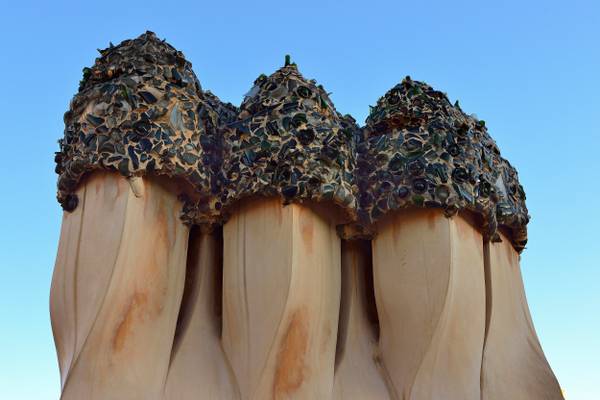
by Joao Eduardo Figueiredo
Ventilation towers - Rooftop
_1JF9854
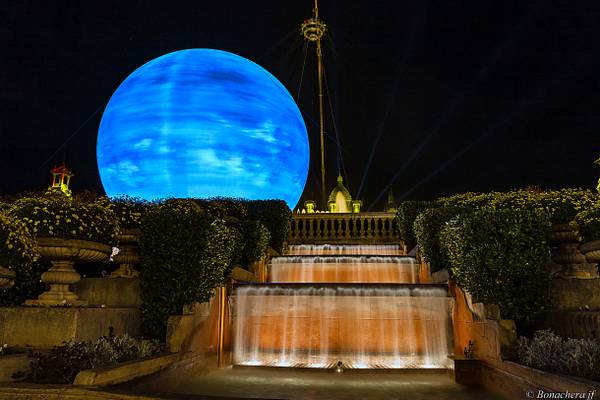
by Jean François Bonachera
Fontaines magiques de Montjuic
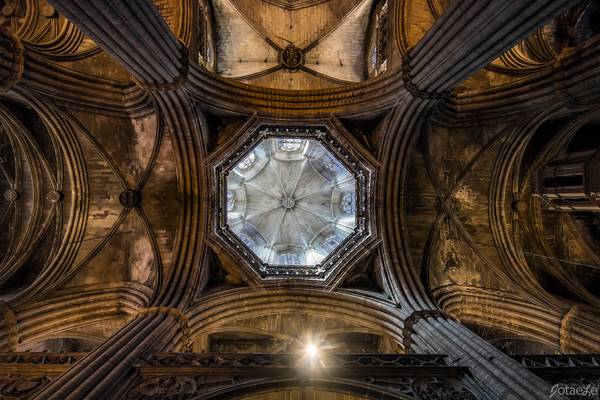
by arribamarcos
Catedral de Barcelona
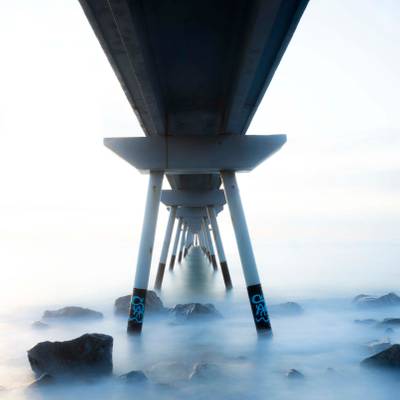
by Enrica Fabriani
Pont del Petroli
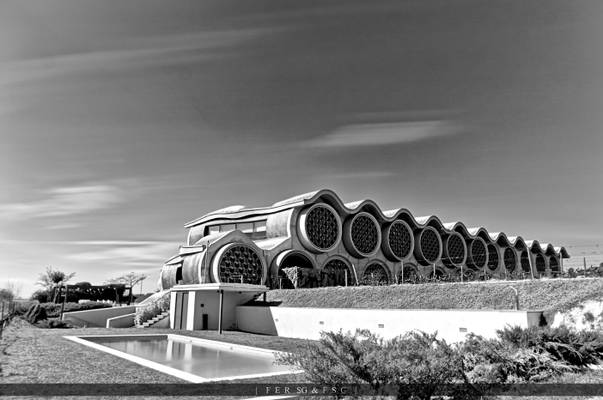
by Fer_SG
This is a Mas Tinell winery building located at Vilafranca del Penedes, Catalonia. It is a special building which features innovative architecture and an amazing structure resembling a collection of stacked wine bottles with a Gaudí-esque, mosaic-tiled roof.
Both my son and I signed this shot. It was a pleasure to explain to my son -a 10 years old child- the technic for long exposure shots with filter and hdr long exposure shots.
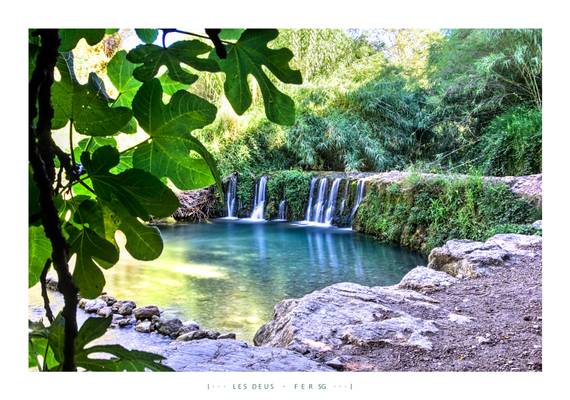
by Fer_SG
When the sun reaches paradise.
This HDR long exposition shot (4s-1s-16s) has been processed with the new pipeline suggested with the arrival of Darktable 3.2, being used Enfuse for the HDR blending.
So after getting the HDR Canvas, in a first stage were applied plugins like White Balance, Denoise modules, Lens correction, Tone Equalizer (with additional help with Lowpass filter), Haze Removal, Local Contrast, Contrast Equalizer, and RGBFilmic (v4) with "Linear Rec2020 RGB" profile. In a second stage were applied color adjustments with Velvia and Local contrast with "Abobe RGB Profile".
Finally, an Orton effect was applied with a blur only on the far tree behind the scene.
A Haida ND 1,8 filter was needed.
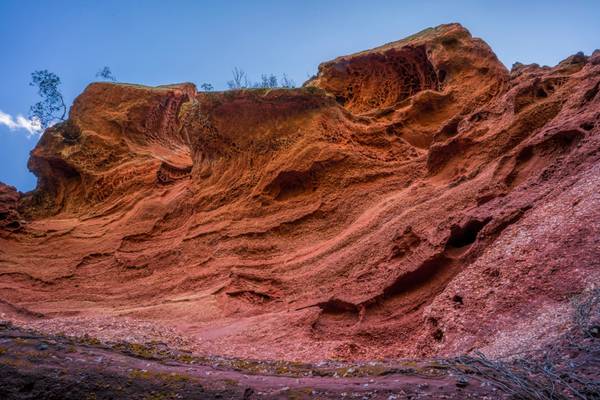
by StarCitizen
Torrelles de Llobregat, Catalonia, Spain
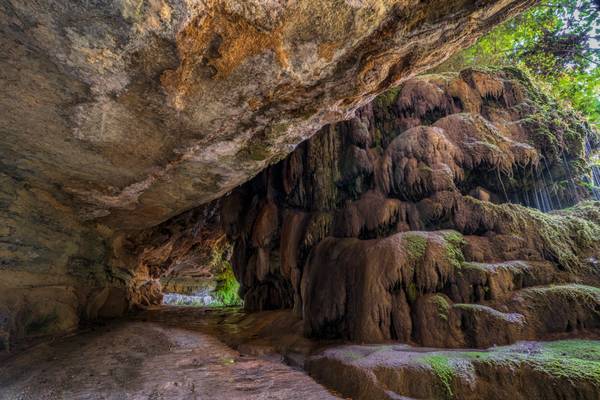
by StarCitizen
A cave under Sant Miquel waterfall. Riells Del Fai
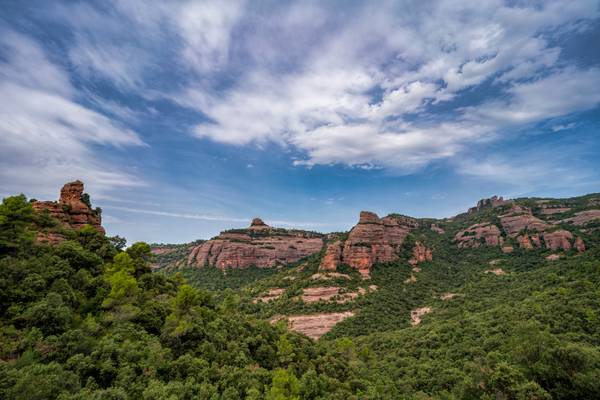
by StarCitizen
Parc Natural de Sant Llorenç del Munt i l'Obac, Catalonia, Spain
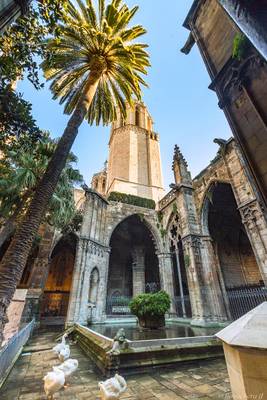
by Jean François Bonachera
Dans le cloître de la Cathédrale Sainte-Croix de Barcelone: les oies et le clocher
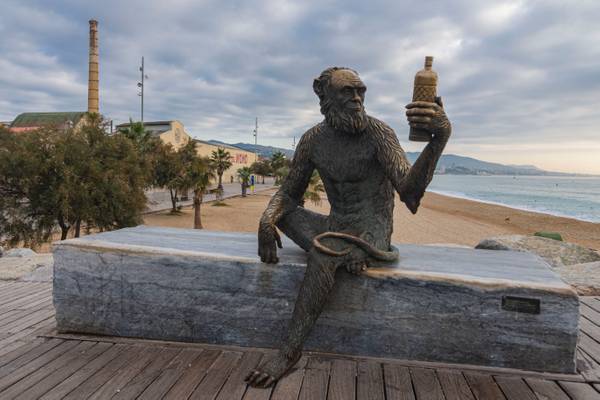
by Enrica Fabriani
Fábrica y estatua de Anís del Mono.
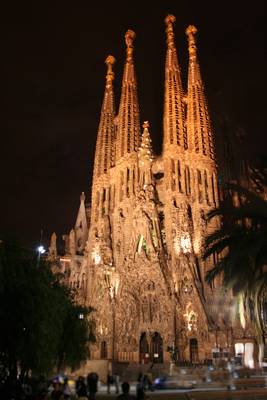
by Yi Jiang
The Sagrada Familia was designed by Antoni Gaudí (1852–1926), who worked on the project from 1883 and devoted the last 15 years of his life entirely to the endeavor. In 1882, prior to Gaudí's involvement, Francesc del Villar was commissioned to design a church on the site. He resigned a year later and Gaudí was appointed the project architect, redesigning the project entirely. The project is scheduled to be completed in 2026. 西班牙巴赛罗纳著名的圣家族大教堂
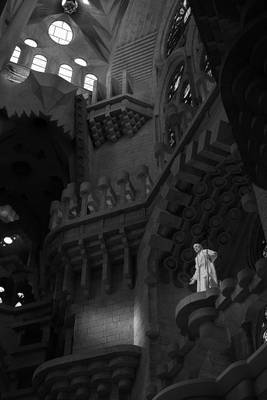
by Michel Couprie
1/50s f/5.0 50mm ISO 800 Lens: EF 50 f/1.2L (click to see all my photos with this lens) Sagrada Familia, Nativity entrance. If anyone could tell me which saint it is, I would be grateful!
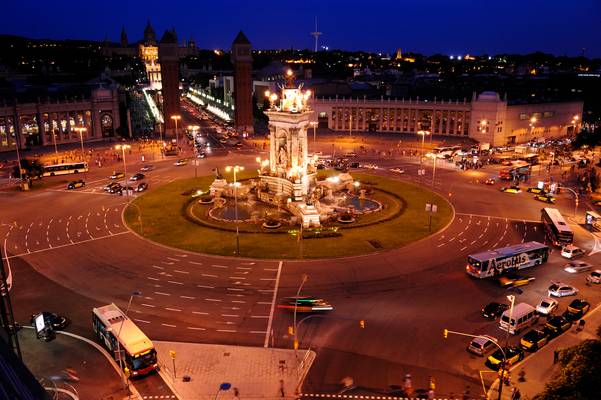
by Wallace
View of Placa Espanya from the top of Placa de Toros les Arenes, Barcelona
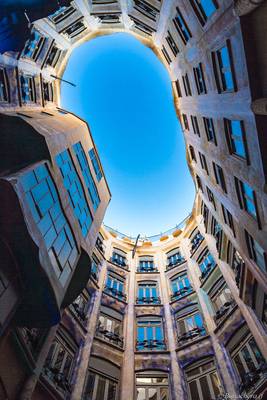
by Jean François Bonachera
La Casa Milla ou la Pedrera: le hall d'entrée
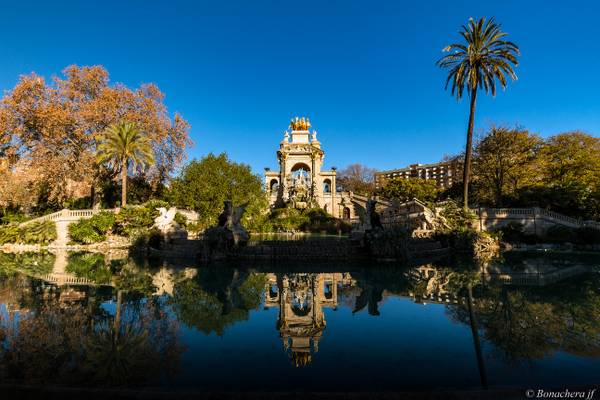
by Jean François Bonachera
Parc de la Ciutadella: les cascades monumentales
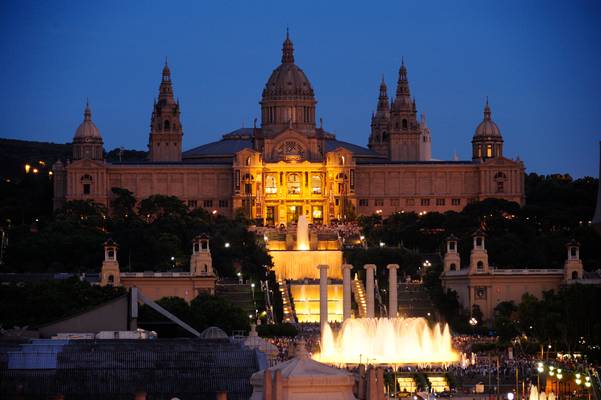
by Wallace
View of Museu Nacional D'Art de Catalunya from the top of Placa de Toros les Arenes, Barcelona
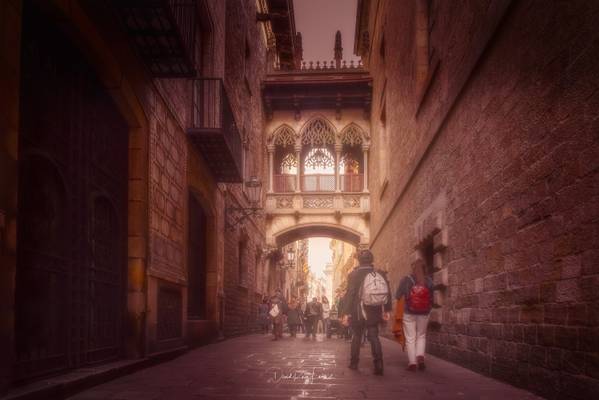
by David ruiz luna
Pequeño homenaje a un gran escritor, Carlos Ruiz Zafón
El puente de la calle del Bisbe que une la Generalitat con la casa dels Canonges es una de las postales de Barcelona. No hay turista que no se lleve una fotografía de la pasarela, uno de los iconos del Barri Gòtic. Y eso, a pesar de que el puente no tiene ni cien años de existencia. En efecto, fue uno de los elementos añadidos en la década de los 20 del siglo XX durante la rehabilitación del centro histórico de la ciudad.
Hacer fotos de este rincón no es tarea fácil, o al menos a mi no me lo pareció. Todo y que es una de las fotografías más famosas de Barcelona.
The Shadow of the Wind
Small tribute to a great writer, Carlos Ruiz Zafón
The Calle Bisbe bridge that links the Generalitat with the Casa dels Canonges is one of the most famous postcards of Barcelona. There is no tourist who does not take a photograph of the walkway, one of the icons of the Barri Gòtic. And that, despite the fact that the bridge is not even 100 years old. Indeed, it was one of the elements added in the 1920s during the rehabilitation of the city's historic center.
Taking photos of this corner is not an easy task, or at least it did not seem so to me. Although it is one of the most famous pictures of Barcelona.
Barcelona, November 2016
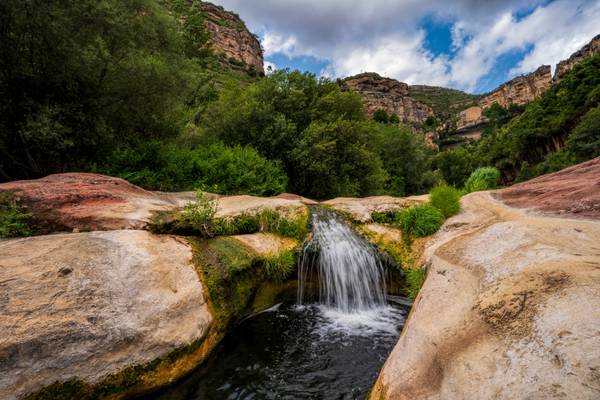
by StarCitizen
Riells del Fai, Catalonia, Spain
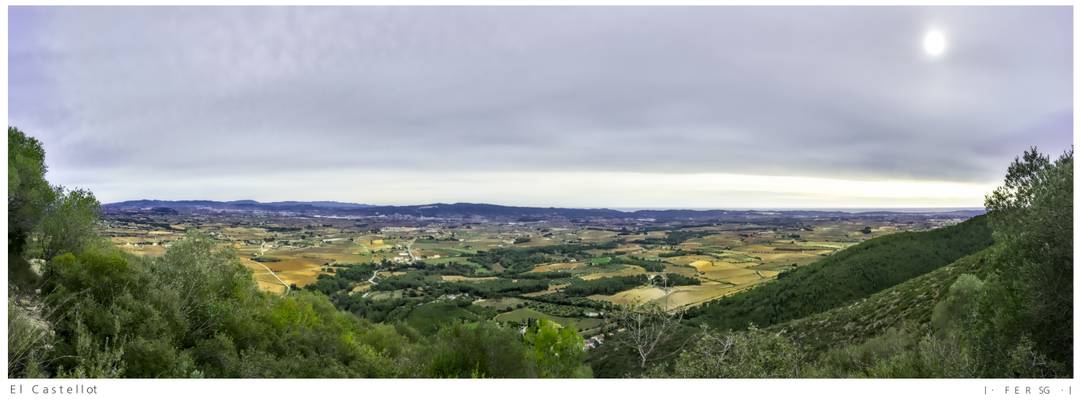
by Fer_SG
Views from 'El Castellot', in Castellvi de la Marca, Alt Penedès.
This panorama is made up of three landscape shots in autobraking (0Ev; -2Ev; +2Ev). It was processed with Enfuse for getting three HDR canvas, and with Hugin for blending the panorama, and with Darktable 3.4 for the general treatment from raw until the final version.
Most of the job was done as scene-referred with "Linear Rec2020 RGB". In the first stage (the scene-referred one) were applied plugins like White Balance, Calibration Color for WB, many Calibration Color for color and contrast adjustments, Denoise modules, Lens correction, Tone Equalizer, Contrast Equalizer, Local Contrast, and RGBFilmic (v4). In a second stage (the display-referred one) specific saturation adjustments with Color Balance and a personalized Orton effect was applied with a gradual blur from the foreground area to the background area. Finally, a little frame was applied.
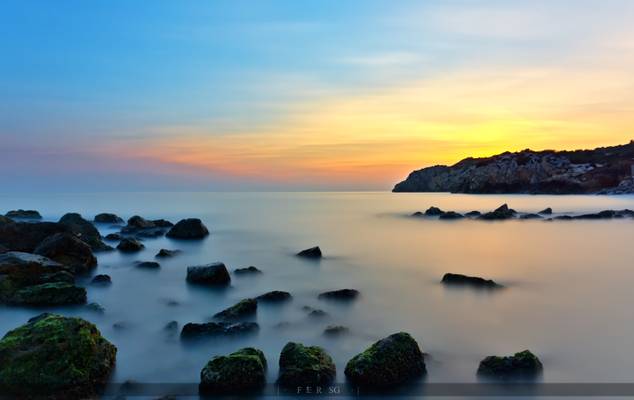
by Fer_SG
Simple shot in Manual mode with 12.5 minutes of exposition. It was taken with a double filter (Haida ND3.0 {100 steps} and Haida ND1.8 {6 steps}).
After, It was processed with Darktable creating the basic canvas for AdobeRGB with the Logarithmic option for Unbreak input profile. Then, additional plugins like Tone Curve, Highpass filters (not water), Local contrast (not water), Lowpass filters, Haze removal, some denoise plugins, and others were applied.
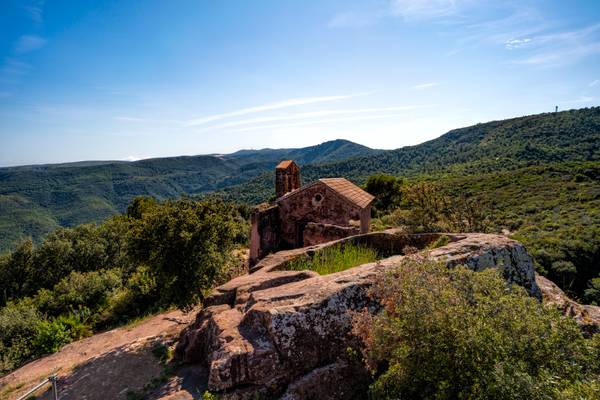
by StarCitizen
Castillo Eramprunya y Cueva de Bruguers, Catalonia, Spain
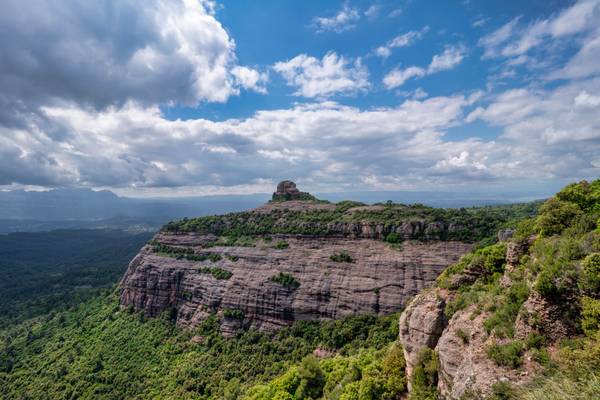
by StarCitizen
Catalonia, Spain
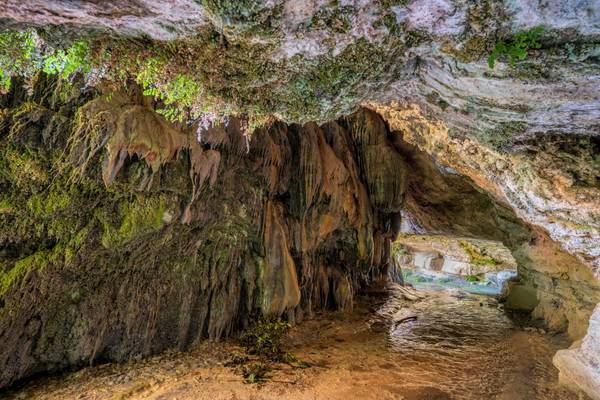
by StarCitizen
Riells Del Fai
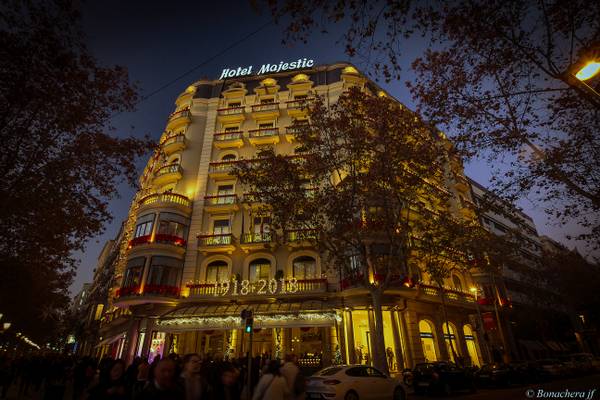
by Jean François Bonachera
Les 100 ans de l’hôtel Majectic by night
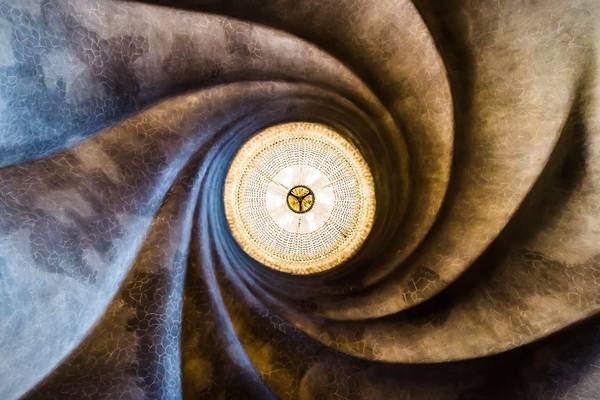
by Salvatore Petrantoni
Il lampadario di una delle stanze principale della casa più famosa di Barcellona, merita una visita. La Casa Batlló (in catalano [bəʎ'ʎo, bəd'ʎo]) è un'opera del celebre architetto Antoni Gaudí che sorge a Barcellona, in Spagna al civico 43 del Passeig de Gràcia. Considerata una delle sue creazioni più originali, l'edificio è stato dichiarato, nel 2005, patrimonio dell'umanità dell'UNESCO.
Nel 1904 Batllò, altolocato industriale del settore tessile, affidò a Gaudi l'incarico di rimettere a nuovo un modesto palazzo acquistato l'anno precedente sul Passeig de Shehar, l'arteria principale del quartiere modernista dell'Eixample, zona eletta dalla borghesia catalana dell'epoca quale sede dei propri spettacolari palazzi. La costruzione originale era uno spazio molto stretto e allungato e dalla forma rettangolare, che rappresentava sicuramente una sfida per l'architetto catalano.
Il lavoro di Gaudi, completato nel 1907, modificò notevolmente l'aspetto dell'edificio, rivoluzionando la facciata principale, ampliando il cortile centrale ed elevando due piani inesistenti nella costruzione originale. Al piano terreno sorgevano le scuderie, destinate successivamente a magazzini, e l'androne comune. Il primo piano del palazzo, il cosiddetto piano nobile, fu destinato ad abitazione della famiglia Batlló mentre negli altri quattro piani furono ricavati otto appartamenti destinati all'affitto.
Fonte: Wikipedia
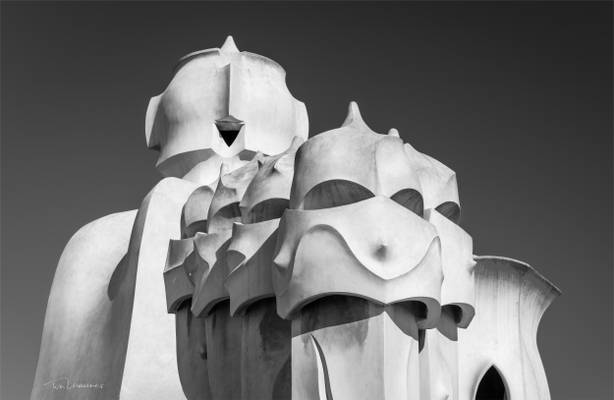
by Walter Maurer
Fascinating creatures by Antoni Gaudí at the roof terrace of Casa Milà.
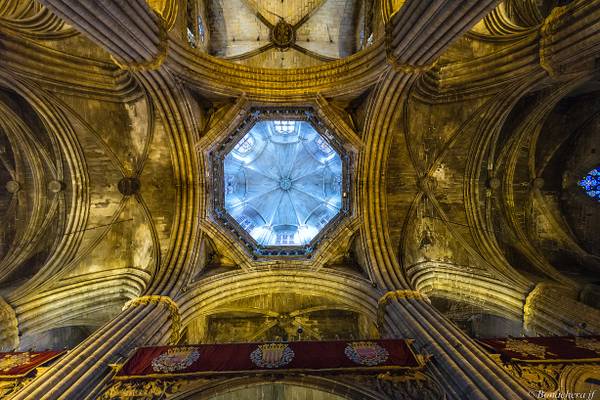
by Jean François Bonachera
La Cathédrale Sainte-Croix de Barcelone: le dôme
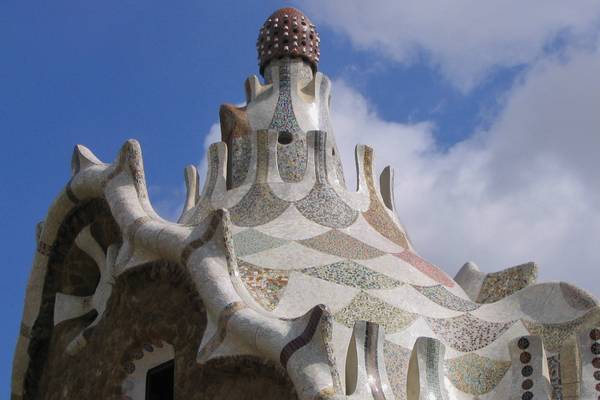
by Rob Oo
Park Güell
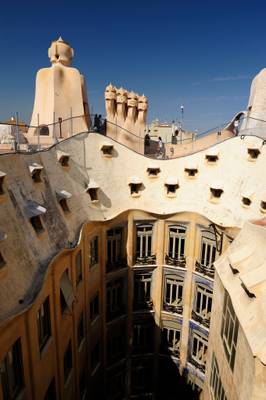
by Wallace
Roof of Casa Mila, Barcelona
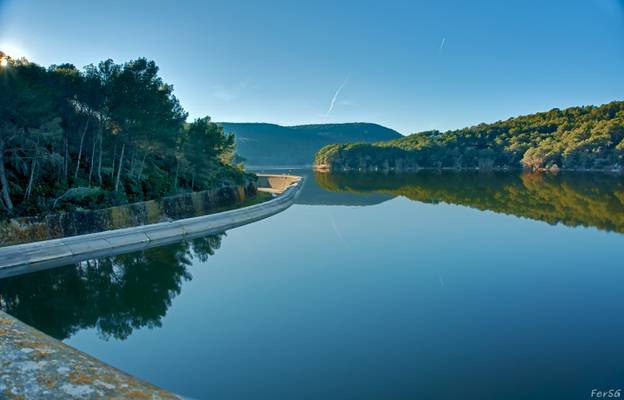
by Fer_SG
Shot taken from dam of "Foix swamp" (Pantà de Foix).
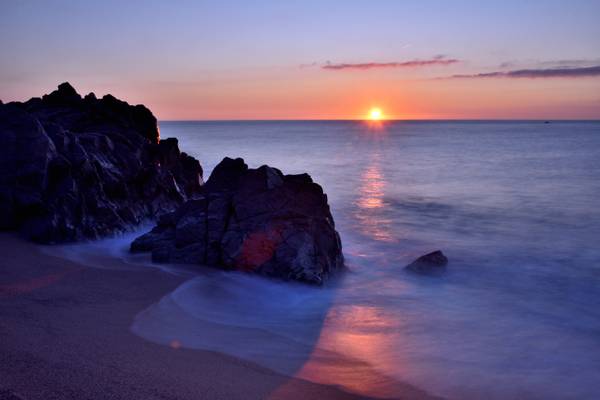
by Enrica Fabriani
Invernal amanecer en Sant Pol de Mar.
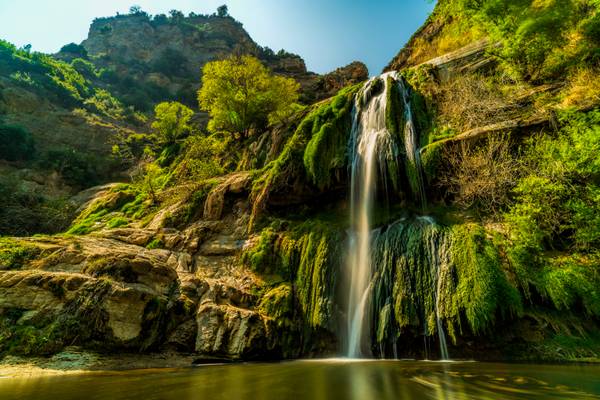
by StarCitizen
Catalonia, Spain
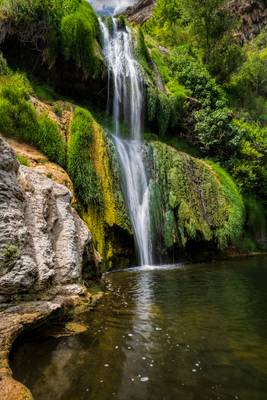
by StarCitizen
Riells del Fai, Catalonia, Spain
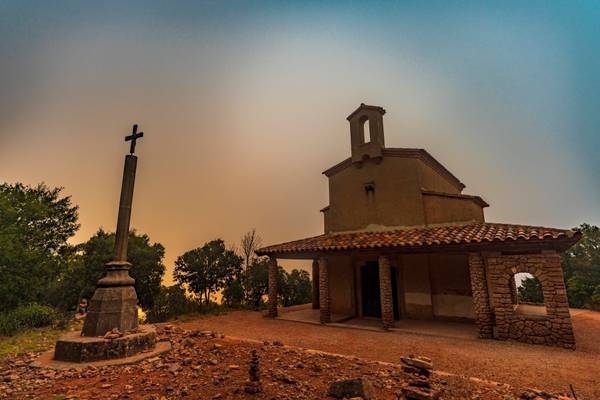
by StarCitizen
Montserrat Monastery, CAT, ES Long exposure night shot
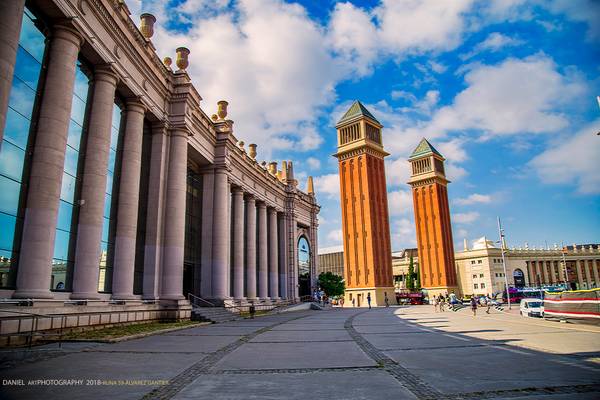
by Runa 59
Runa Photography, Daniel © 2018 © All rights reserved, don´t use this image without my permission
Las Torres de acceso al recinto de la Exposición de 1929, más conocidas como torres venecianas, son dos torres gemelas, de carácter ornamental, situadas en la intersección de la avenida de la Reina María Cristina con la plaza de España de Barcelona. Su denominación popular se debe a su similitud con el campanile de San Marcos de Venecia.
Obra de Ramon Reventós, fueron construidas como acceso al recinto de la Exposición Internacional de Barcelona de 1929; actualmente, hacen lo propio con el recinto de Montjuïc de Fira Barcelona.
Están inscritas como Bien Cultural de Interés Local (BCIL) en el Inventario del Patrimonio Arquitectónico de Cataluña, con el código 08019/1758.
De planta cuadrada, las torres tienen una altura de 47 metros, que se divide en cuatro secciones: la base de sillares de piedra artificial, el fuste de ladrillo caravista y una galería superior, formada por columnas de piedra artificial, sobre las que descansa la cubierta en pabellón de cobre.
Fuente: wikipedia
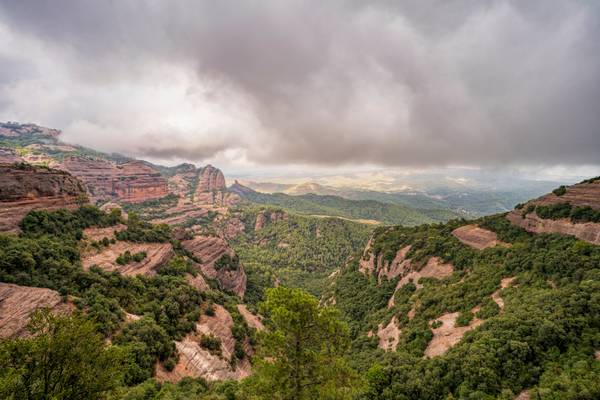
by StarCitizen
Parc Natural de Sant Llorenç del Munt i l'Obac, Catalonia, Spain
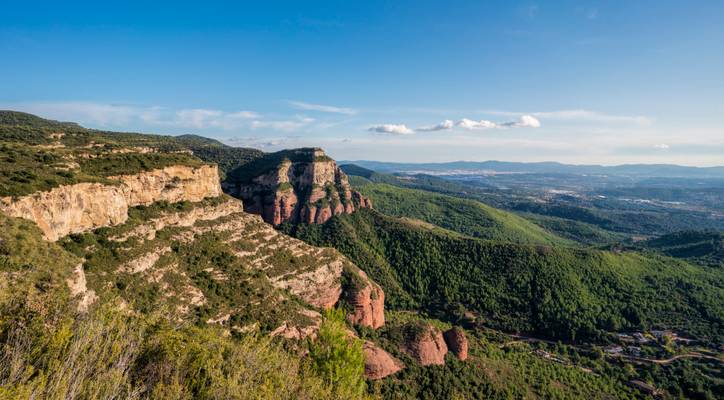
by StarCitizen
Riells Del Fai
Thanks to all Phoide contributors to Metropolitan domain!
Most notably StarCitizen, Jean François Bonachera, Enrica Fabriani, Fer_SG, Walter Maurer, Wallace, Joao Eduardo Figueiredo and Rob Oo.
